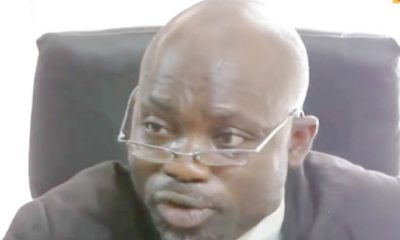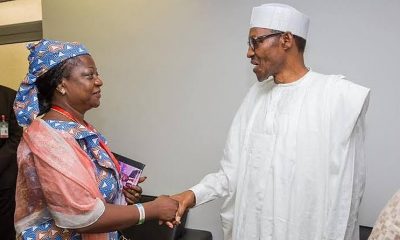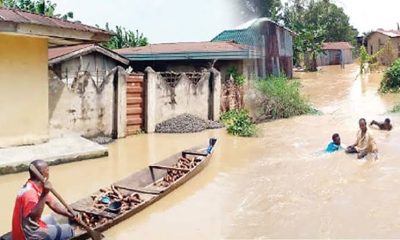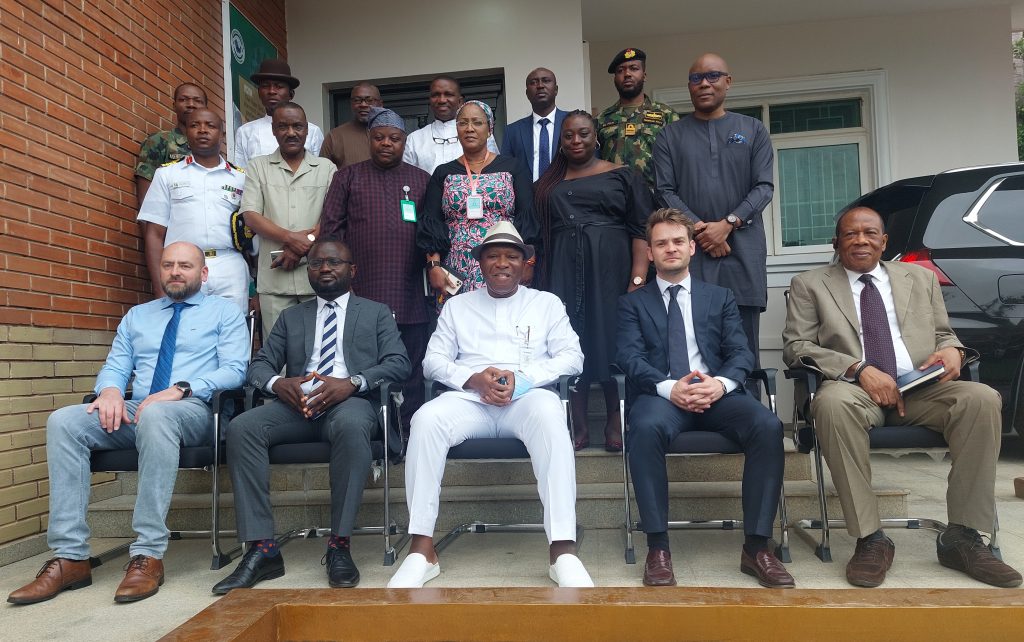Point Blank
Niger Delta: Politics of renewed attacks on oil facilities and matters arising
Published
10 years agoon
By
Olu Emmanuel
IT is actually intriguing how simple we can be in our thinking in this country. You can conveniently sit in Abuja or Lagos and make everything concerning the security challenges in the oil producing Niger Delta region look easy and straightforward but the reality on ground is that if you have an idea of the complex dendritic networks of pipelines in the oil producing areas and even across the country, you will willingly agree that the security of oil facilities and installations in the Niger Delta or the rest of Nigeria is in the hands of God only. Take it or leave it: There is nothing the authorities- military and para-military can do to effectively safeguard all the facilities if God and the people say no.
Agreed that the attack on pipelines and other installations whether in the Niger Delta or elsewhere in the country is pure criminality that borders on economic sabotage, but this also depends on who is doing the definition. In the first instance, what is lawlessness; or being law-abiding? Are these not defined by benchmarks we set by ourselves to suit our purpose which oftentimes are selfish at best and wicked at worst?
Lately, militant activities have disrupted government’s financial projections and obviously, there is a need for a swift response, much more so, if seemingly done swiftly in the interest of the nation.
The wrong identification of the problem in the delta region has led to a wrong prognosis. The government has equally responded wrongly and this poses dire threats to the national economy. Within the last one month, attacks on some key oil and gas installations has already given a deep drawdown into Nigeria’s daily oil production output, which now stands at a little above 800, 000 barrels per day, a far cry from the 2016 budgeted production benchmark of 2.2 million barrels per day. With a loss of over 60 percent capacity to meet the volume of crude oil used in the fiscal appropriation, it is going to be practically impossible to meet key budgetary revenue projections in the 2016 budget. So this matter goes beyond casual response. If the military can just step in and immediately stop the spate of attacks on facilities, it would have been wonderful. But the truth is that it is not as easy as that!
And this is why the expressed disposition as revealed by The Petroleum Minister Dr Ibe Kachikwu in a parley with civil society groups in Lagos should be encouraged.
ALSO SEE: Tension in Niger Delta: Communities panic as military plan onslaught
As said by Kachikwu, government is ready to use the opportunity of a dialogue with the people of the region to speak to the militants (real and political) on why their actions are inimical not only to the interest of the entire nation but more so to the Niger Delta region.
His words: “The military barrels cannot stop or solve problem of militancy in the Niger Delta region. I will have to go back to my brothers; they are our brothers we will go and dialogue with them.”
However, it is still important to pause and think deep about this whole scenario.
We all have to agree that this proposed dialogue, if it is going to hold in the first instance, must not be like others in the past. It must be comprehensive and fundamental if it must address the real issues at the bottom of the symptomatic perennial outburst of violent agitation in the creeks. It must avoid tokens for gratification of certain egos and ad hoc measures that will create wealth for only the elite deviant armed commanders.
The immediate past administration kept the militants quiet at a very high cost to the nation. It is important for government, after this round of negotiations, to take advantage of the ‘quietness’ to be installed by looking for very clear ways of permanently mitigating the genuine and openly declared root causes (not political reasons) of these militant activities, otherwise, it will amount to dancing around the problem.
So whatever is going to be discussed as the agenda for the dialogue should not make the costly mistake of overlooking the collective aspiration of the generality of the battered and neglected region and its people as this is the only way to avert emergence of new and even more dastardly groups. Negotiating with militants must be seen as a temporary solution to this challenge, because the so called militants do not represent the generality of the Niger Delta people and their aspirations for a better life.
ALSO SEE: Mobil shuts down terminal over militant threat as oil prices tumble
While government is exploring the avenue of peaceful dialogue with all strata of the Niger Delta society including those identified as militants, it should not lose sight of the likelihood that the renewed attack on oil facilities may also not be entirely related to agitation for a better life for the people of the region. And this is why the federal government has to this time do much more than just taking the problem on the surface.
Could there be external “forces” from outside the region even outside Nigeria that are actually sponsoring these crises for pecuniary reasons? Could there be those who want to covertly under the guise of the existing disenchantment of the Niger Delta people turn on the heat on the federal government for political reasons (not just local but even international politics)?
Where does the government place the cartel that has been buying stolen oil from the region in the equation of the real actors and players in this renewed armed confrontation?
Did crude oil theft stopped with the inauguration of President Buhari’s government? If it didn’t, then what is happening in the Niger Delta should be seen as a multi-pronged problem that may border even heavier on outright campaign to cause confusion in the region rather than perceived move to protest alleged nonchalance of the federal government towards the plight of the real people of the region.
ALSO SEE: Buhari makes fresh offer to Niger Delta militants
The Movement for the Emancipation of the Niger Delta (MEND), though another disgruntled group, in a recent statement, alluded to the influence of “external forces” in the renewed attacks on oil installations and facilities in the delta region.
According to MEND, “The sudden emergence of the group called ‘Niger Delta Avengers’ has absolutely nothing to do with the Niger Delta struggle but rather a tool by certain elements to destabilise the current government. Going by their actions and subsequent statements, it has become very apparent on who the sponsors of these group are.”
Also a former spokesperson of the Presidential Amnesty Programme Mr. Daniel Alabrah, recently advised President Muhammadu Buhari to look beyond the region for solution to the renewed violence by the Niger Delta Avengers (NDA).
His words: “What is happening in the Niger Delta at the moment is not militancy. Militancy is no longer attractive in the region due to the role of the Amnesty Programme in engendering peace and stabilising of security. If it is militancy, where are the camps?
“The attack on pipelines and oil installations is pure criminality and sabotage. But it requires intelligence gathering to effectively tackle it. Forces beyond and outside the region appear to be behind the current wave of sabotage of oil facilities. The government and the security agencies need to look deeper and cast their intelligence net wider to unravel the masterminds of these nefarious acts.”
Rather than simply viewing the renewed violence in the oil producing region as a deliberate plot to frustrate the Buhari government, or rather to seek attention from it, Government should piece all the available intelligence together to get a holistic view of what actually is going on in the area. Is it not surprising that so far the various attacks have been meticulously carried out despite the high security presence in the areas. It clearly shows that those behind these attacks are very organised and experienced with the terrain and probably may be working with some grey elements in the top military commands in the region. Just thinking aloud!
You may like


Troops destroy 65 illegal refining sites in major operation


Stakeholders decry injustice in Niger Delta as SERAP conducts research


NDDC: Fractured but unbroken


Shell urges multi-stakeholders’ support to flood victim in Niger Delta


Nigeria, EU partner to address instability in Niger Delta


Amnesty boss calls on Niger Delta people to leverage on opportunities
Trending

 Entertainment5 days ago
Entertainment5 days agoSimi addresses resurfaced 2012 tweets amid online backlash

 Health1 week ago
Health1 week agoSCFN, LUTH introduce bone marrow transplants as curative treatment for sickle cell

 Health4 days ago
Health4 days agoDeclassified CIA memo explored concealing mind-control drugs in vaccines

 Football1 week ago
Football1 week agoHarry Kane nets brace as Bayern edge Frankfurt 3–2 to go nine points clear

 Football1 week ago
Football1 week agoLate Flemming header stuns Chelsea as Burnley snatch 1–1 draw at Stamford Bridge

 Crime4 days ago
Crime4 days agoSenior police officers faces retirement after Disu’s appointment as acting IGP

 Education6 days ago
Education6 days agoPeter Obi urges JAMB to address registration challenges ahead of exams

 Crime1 week ago
Crime1 week agoTwo killed, seven injured in early-morning shooting in Richmond’s Shockoe Bottom

